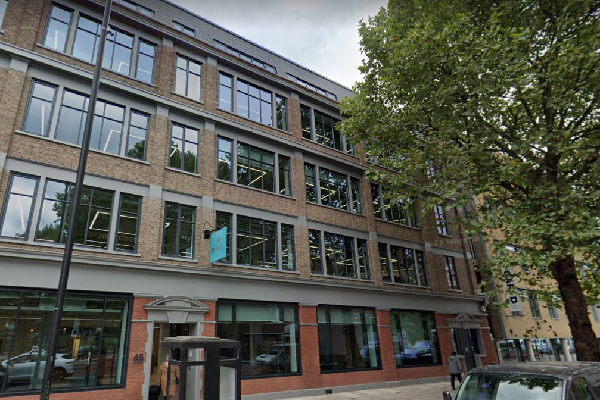You are viewing 1 of your 1 free articles
Large London housing association has ‘reduced capacity’ due to financial pressures, RSH says
Peabody is among three social landlords with “reduced capacity to respond to adverse events” due to growing financial pressure, the regulator said, as it maintains their grades at the second notch for financial viability.
In its latest round of judgements, which followed in-depth assessments (IDA), the Regulator of Social Housing (RSH) explained that Peabody, Believe Housing and Halton had retained their governance grades of G1, and V2 for financial viability.
It said Peabody’s financial plan contained “high levels” of stock investment expenditure, including significant fire and building safety works, “putting pressure on its interest cover ratios”.
“Peabody is also delivering a large and diverse development and regeneration programme, which exposes it to the housing market,” the English regulator said.
“When coupled with the current economic conditions in relation to inflation and interest rates, these reduce Peabody’s capacity to respond to adverse events,” it added.
The judgement is similar to one issued for Peabody in December 2021, where it said the group complied with the viability standard but flagged “significant fire and building safety works” and its “large and diverse development and regeneration programme” which gave rise to “material risks”.
While the judgement says the regulator has ‘changed the basis for viability grade’ this is just a reference to the new investigative work it has carried out, rather than a change in the reasoning for the grading.
With 104,000 homes, Peabody is the fourth-largest provider in the sector, operating across 107 local authority areas in London and the Home Counties. It completed a merger with Catalyst in April.
Like all providers, it has faced pressure to invest in its existing homes in recent years. This has been exacerbated by rising prices and interest rates.
It is working on the regeneration of the Thamesmead Estate in south-east London, one of the largest and most complex regeneration schemes in the country.
A spokesperson for Peabody said: “We’re pleased that the regulator has reaffirmed our G1 and V2 ratings following a robust IDA process over the summer.
“The ratings are unchanged. This shows we’ve made good progress following the joining together of Peabody and Catalyst.
“We retain the highest governance rating and are fully compliant on financial viability. We’re prioritising increased investment in people’s homes, including fire safety, and in locally focused services for our residents.”
The regulator made similar comments about Durham-based Believe Housing, which was created via a stock transfer from Durham Council in 2015.
The RSH said: “Believe is increasing its investment in existing homes while continuing to develop new homes.
“Its forecast plan includes some sales exposure. Coupled with the current economic uncertainty in relation to inflation and interest rates, these factors reduce Believe’s capacity to respond to adverse scenarios.”
A spokesperson for Believe said: “Against a challenging backdrop of ongoing economic and cost of living pressures, we are pleased to have retained our G1/V2 rating.
“At Believe Housing, our focus is always on delivering the best services possible in line with customers’ needs and expectations, and we will continue to ensure that the customer voice is central to shaping and delivering our plans.”
Halton Housing, which owns more than 7,000 homes across Cheshire and the North West, is also increasing investment in its existing homes, “resulting in reduced levels of interest cover”, the RSH said.
“Alongside the current economic uncertainty in relation to inflation and interest rates, this has reduced its capacity to respond to adverse events,” the RSH concluded.
Sam Scott, group chief executive of Halton, said: “To retain our G1/V2 rating through the recent IDA is a really positive outcome for Halton Housing and reflects the hard work across the organisation to ensure that we are delivering great services for our customers and meeting the standards set by the Regulator of Social Housing.
“Our viability rating, like many across the sector, is reflective of the challenging environment we are operating in and our strategic priority to continue to invest in our homes and services.”
The RSH also confirmed Magna Housing’s top grades of G1 and V1.
Selina White, chief executive of Magna, said the 9,000-home landlord was “very pleased” with the outcome.
“This shows we are a financially sound and well-run business that’s in a good place to meet the considerable challenges we and our customers face,” she said.
Referred to Magna taking part in the regulator’s consumer-inspection pilot ahead of the new regime, Ms White said it was a “valuable opportunity” for it to undergo an early assessment of its capabilities against the new inspection process and to provide feedback to help shape the new regulatory approach.
“I’m grateful to every Magna colleague. It is their hard work and commitment to creating great homes together that is reflected in this positive judgement by the regulator,” she said.
Sign up for our regulation and legal newsletter
Already have an account? Click here to manage your newsletters












